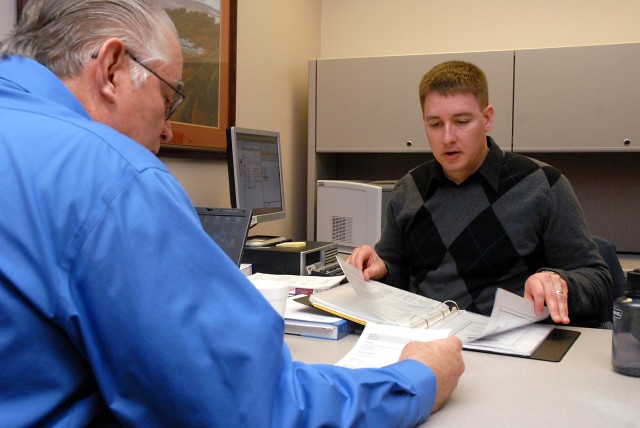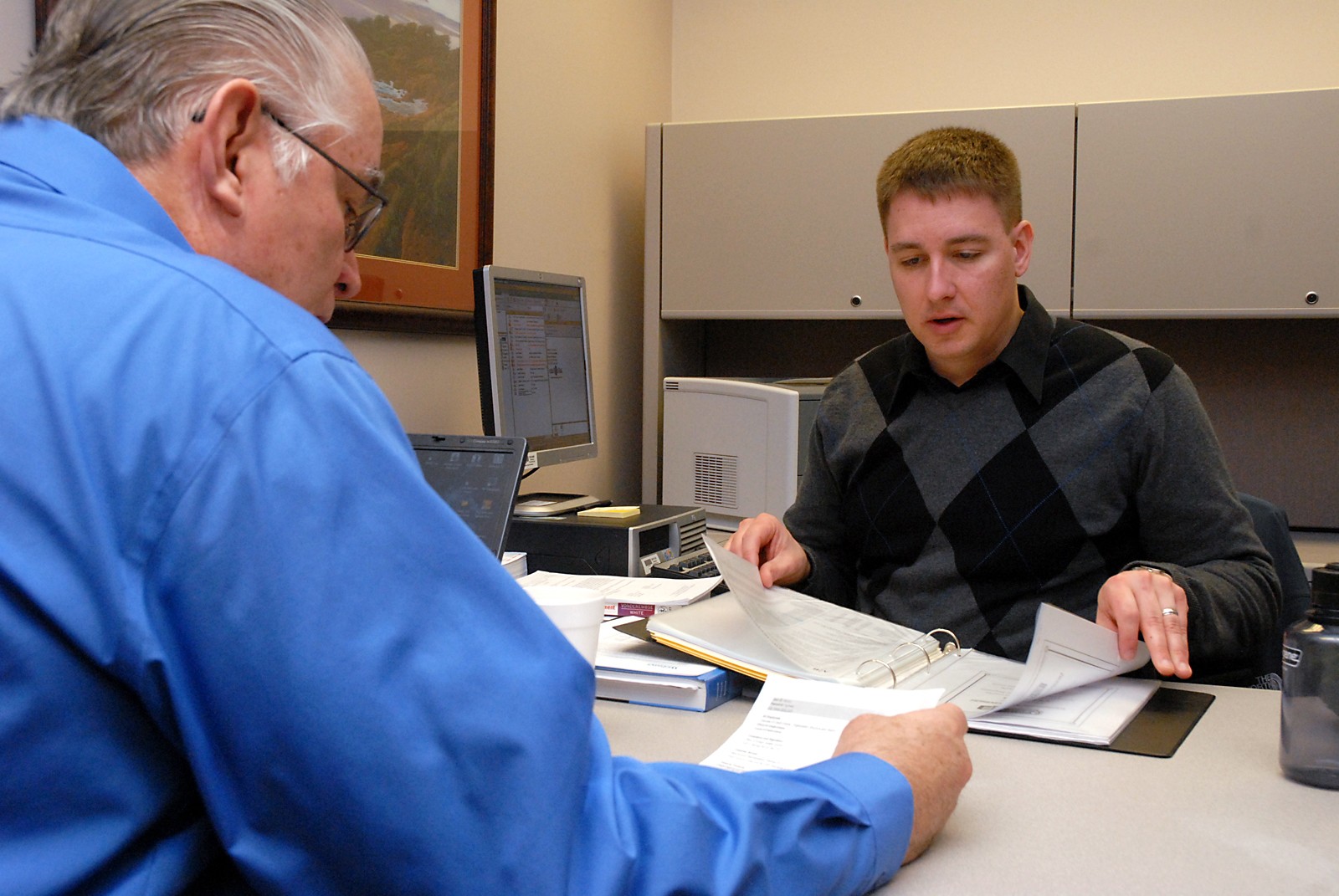
FORT LEAVENWORTH, Kan. (Feb. 11, 2010) - When he completes his program, Capt. Chris Wurst will be one of two banking and credit union liaison officers in the Army, where he'll utilize skills learned in the Training with Industry program.
Getting an exclusive banking job in Europe wasn't Wurst's sole reason for choosing to take part in the program. He wants to develop a career within the Army.
"I guess I just like the orderly balancing of money," he said. "Just trying to keep things neat and orderly and being able to track money."
Wurst's goal after high school was to go into accounting, but he earned a bachelor's degree in military history and joined the Army as an Armor officer. He deployed twice to Iraq. When reassessing his goals, Wurst decided that if he wanted to make a career out of his Army experience, he would prefer to have a job in finances. He switched branches to become a Finance officer.
Wurst joined the Training with Industry program to give him a grasp of his new field that he couldn't receive from the military. The program began in the 1970s. Its purpose is to give active-duty service members training from private U.S. commercial industries.
"I had no prior banking experience whatsoever, so it's basically starting from scratch," Wurst said.
TWI is a yearlong course similar to an apprenticeship. Officers and noncommissioned officers gain industry expertise, which they will take back to their military positions. Students are encouraged to wear civilian attire and network with their civilian trainers and employers. Wurst is studying at Armed Forces Bank for his training, but other branch studies might include learning to write government requests for proposals or marketing. For example, Wurst said one noncommissioned officer in the Public Affairs branch recently worked with Google. Students are required to work on their master's degree during the program. Wurst is working toward a master's in business administration from Webster University.
Bob Schultz is a senior vice president and regional manager for Armed Forces Bank. As a coordinator for TWI, he developed the financial portion of the training and has overseen seven officers complete the program.
"Within this program, they will do everything from the basic tellering and filing to the review of applications of law for banking," he said. "You also have to sit through and work in the call center, so (students) get a firsthand picture of what our men and women who are deployed are experiencing in their different theaters."
Schultz, a former Army officer himself, said there was no civilian equivalent to the type of training students receive in the financial portion of TWI. A civilian working in the banking industry would work for years and if they were lucky, might be promoted to gain the type of experience Wurst is receiving. Banking has always been a heavily regulated industry, akin to a legal career, Schultz said.
"When I structured this thing, what I was asked to do was take someone who knows nothing about banking and teach them all the things that a senior-level manager would need to know, so it's a very intense course," he said.
Schultz said students in the financial portion work at about five locations in Leavenworth and Kansas City. They also work with the credit union, because they will become the banking and credit union liaison officers. Military personnel are often supervised by bank vice presidents and senior vice presidents. They take courses from the American Bankers Association and the National Credit Union Association.
"What always surprises them is the intensity of what they have to learn," Schultz said. "There's a lot of information in a short period of time and not a lot of room for error."
Schultz said that in Wurst's position as a banking and credit union liaison officer, he would be the person who speaks for the Army on all banking matters. He'll likely be expected to brief three- and four-star generals in banking law requirements.
"From a career perspective, it's a lot they have to know walking out of here," Schultz said.
Students in TWI report to the U.S. Army Student Detachment in Fort Jackson, S.C. For more information about the program, visit detachment's Web site at http://www.jackson.army.mil/units/!USASD/index.html.

Social Sharing